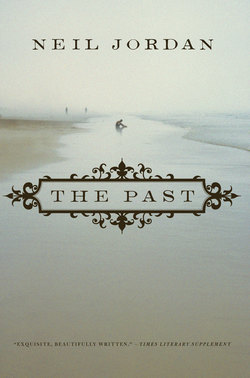Читать книгу The Past - Neil Jordan - Страница 18
На сайте Литреса книга снята с продажи.
Оглавление11
IT MUST BE soon after this that you reach the age of reason which, like the age of the earlier maxims, makes the undifferentiated flow of your experience manifest and outward, placing it neatly in language and time, allowing others to say to you that you are different now from what you were then. And though you wonder how such a change could creep on you unawares, yet when you hear Sister Paul explain the metaphysics of reason to the class (though she seems to be speaking only to you) you accept that you must be different if only because you are being told so. You accept that your days and memories up to this moment are one thing and after that moment will be another. You suspect a cruelty behind this knowledge though and wonder whether if you hadn’t been given it would the same be true? She tells you how up to that moment you could not sin because you were not aware of sin but how after that moment the awareness of sin that she is handing you like a gift will make it possible for you to sin. And you accept a further slice of knowledge which defines this sense of difference in you, the fact that now every action will have to be balanced and passed between the twin primaries of sin and virtue, and that between them there will be an expanse of medial tones and that, no matter how fragile this difference in tone, there will always come a point where white swings imperceptibly into black, beyond which you will be able to say, Now I have sinned. You wonder whether this sense of sin is a gift to be developed, whether you must learn to sin as you once learnt to walk. You sense that these words she is imposing on the flow of your days are somewhat arbitrary, like the words she underlines, for obscure reasons, on the hymns she chalks on the blackboard. And yet there is comfort in the language and Sister Paul has after all impressed on you that knowledge can never be useless. You toy with this new knowledge, imagining some use for it while Sister Paul continues with an image of the soul as a droplet of pure water coming from God into the world, tarnished only by the fact of its birth. And you imagine God then to be a sea, remembering the water that splashed you from the falling basin, for a droplet must come from some larger expanse and a sea is the largest expanse you can imagine; you suspect that this sea is not the sea you know, always the lowest point in the landscape, but a sea that is placed somewhere above your experience, mirroring the sea that you know, permeating you with its backwards waves. But, Sister Paul continues, as our days multiply and as we progress from the age of innocence to the age of reason (and here she pauses, implying a multitude of ages, the texture of which you cannot imagine) this droplet becomes tarnished by the grains of hours and experience and only our own efforts can wash it back to something like its original purity. And you accept this image but fortify it with your own one, of that ocean in reverse washing over every hour of your days. And there is a slanting pencil of light coming through the window, falling on your hands, which are to yourself and from yourself, shaking slightly because of the wind on the umbrella of buds outside, because between your hands and the sunlight there is the tree. And Sister Paul has continued to describe to you the sacraments that belong to the age of reason, those of Confession and Communion. She asks you to rehearse the reality. Each of you is to confess to her seat-mate the actions which, in the light of reason, can be seen to be sinful. Lili confesses to you a series of misdemeanours but the air of secrecy and confidence generated by your bowed heads is such that she ends with the confession that she loves you. And you confess to her another series and end with the confession that you love her. And thus you suspect a mystery in reason, sin and in the droplet of water far more bountiful than that which Sister Paul has explained; though watching her distribute the tiny pieces of wafer which are to substitute for Communion bread, you suspect she knows more than she has explained. And feeling Lili’s hand curl round yours on the wooden desk you sense that reason, far from having tarnished your droplet of water, has washed it even purer and even more, has magnified it to a point beyond which it can no longer be considered a droplet, for such is the feeling welling inside you, you suspect it would fill a whole glass. All the other details of the age of reason seem ancillary to this: the Act of Contrition which Sister Paul writes on the blackboard, the pennies of bread which she distributes, which you place on Lili’s tongue and she places on yours. And when the big day comes and you wear your white dress that comes nowhere near the brilliance of the yellow irises, when the events you have rehearsed take place, your real Confession seems to you a pale imitation of your first, rehearsed one. And perhaps you realise that the form of our public acts is only a shadow of that of our private ones, that their landscapes are just reflections and like that real sea below that imaginary sea, with its piers and palms and beaches, reflections in reverse.
